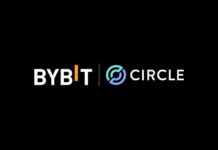
This article is part of a regular series of thought leadership pieces from some of the more influential ETF strategists in the money management industry. Today’s article is by Mike Venuto, co-founder and chief investment officer of New York-based Toroso Investments.
An innovative marriage that promises to combine two unique “fintech” concepts—the ETF and the peer-to-peer digital currency bitcoin—looks like it’s finally about to happen.
Indeed, a bitcoin ETF is likely to be approved by the Securities and Exchange Commission as soon as next month. The idea was first proposed to the SEC about three years ago.
Combining ETFs and bitcoin is likely to be consequential. After all, ETFs have been revolutionizing investments for 25 years, and bitcoin, since its 2009 introduction, has shown potential to completely change financial transactions. In an age where asset allocation is its own asset class, a bitcoin ETF could have a place in many portfolios.
There are three competing ideas currently coursing their way through the SEC, so there’s a lot to chew on here. To make all this a bit easier to digest, I’ll ease into the bitcoin ETF discussion in the following way:
- I’ll describe bitcoin in greater detail to help explain what everybody is so excited about.
- I’ll describe the three proposed ETFs that will be designed to give investors access to bitcoin.
- I’ll discuss what I think the odds are that these ETFs will actually be approved.
- We will analyze whether it will be a good investment, should it go through.
Measuring Excitement About Bitcoin
So, why is everybody so excited? Charts like this one showing rapidly increasing use of bitcoin help illustrate why so many people want to be part of this growing phenomenon. They think: “OK, it’s a new currency; it’s crowd-sourced. I’m in!”
‘Internet Of Value Exchange’
It’s not quite that simple. In a recent white paper, Deloitte Touche described bitcoin as an “Internet of value exchange.” The real value of bitcoin is about the utilization of the infrastructure on which it is based. The more bitcoins are mined, or “hashed,” the more a free encrypted version of the internet is expanded.
This self-reinforcing infrastructure that becomes more dependable as more people participate, is called the “blockchain.” It can be used in a way to transfer securities, to create artificial intelligence, secure real estate or art transactions and, potentially, for all kinds of other transactions.
Look at bitcoin this way: 20 years ago, the internet democratized access to information, and now the bitcoin blockchain is democratizing access to commerce.
[newsletter_form lists="1"]










